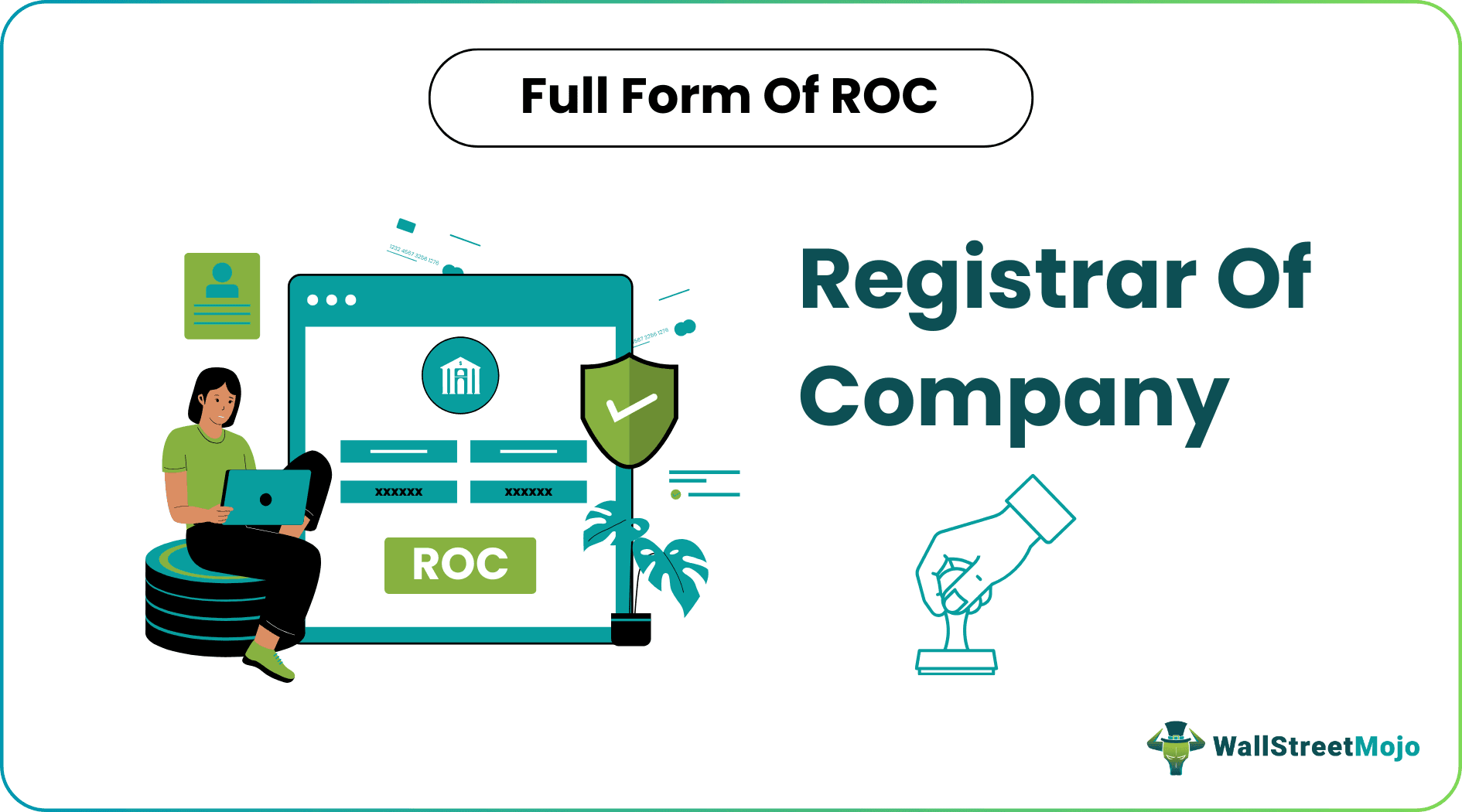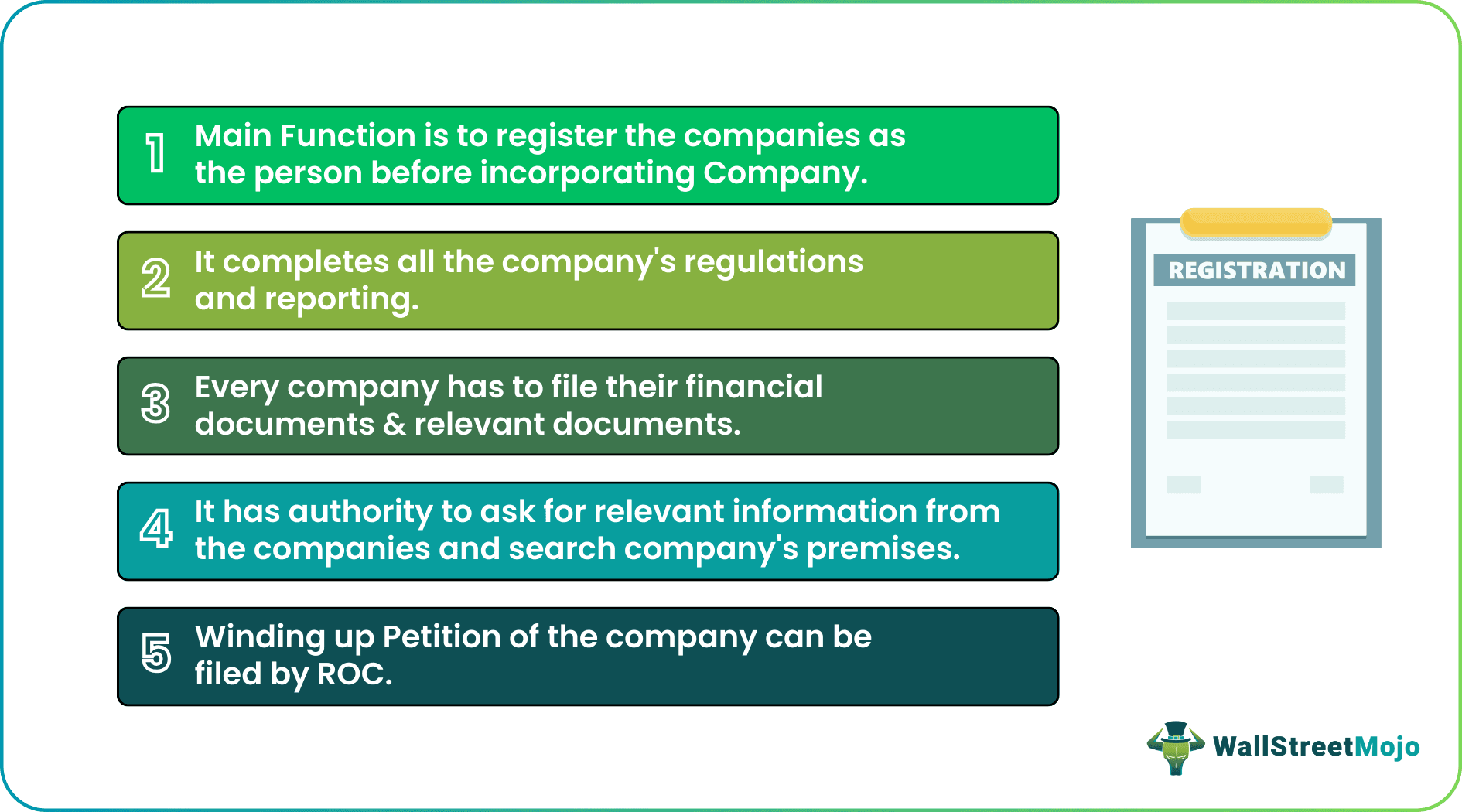Table Of Contents
Full-Form of ROC - Registrar of Company
ROC’s full form is the Registrar of Companies. Therefore, one can define the Registrar of Companies as the public authority registered under the Ministry of Corporate Affairs, which plays a significant role in the administration of different companies and the LLPs (Limited Liability Partnerships) in India under the administrative control of the Central Government of the country.

Table of contents
Role
- Under section 609 of the Companies Act, 1956, the ROC’s principal duty is to register the companies and the LLPs (Limited Liability Partnerships) in India. No company can commence business without getting a Certificate of Incorporation from the Registrar of Companies. It maintains the registry of records with the details of the companies registered with ROC and the payment of the stipulated fees. It also allows the general public to access this information. It plays an important and very much required role in fostering and facilitating the business culture.
- The Registrar’s role does not end after completing the registration process, and the same continues with the working of the companies or LLPs. It is so because whenever companies require changes such as a change of the name, objectives, registered place of business, etc., then such changes can be done only after intimating the ROC once completing all the formalities.
How Are Companies Registered with ROC?
- The principal duty is to register the companies and the LLPs (Limited Liability Partnerships) in India across all its states and union territories. The companies must register with the ROC for their existence by getting the ROC certificate.
- For the certificate of incorporation, the promoters of the company or LLP, as the case may be, must submit the necessary documents to the Registrar of Companies. The required documents include Articles of Association, Memorandum of Association, and the pre-incorporation agreement, made for appointing the company's Directors or the Managing Directors. With these documents, one must also submit a declaration where there is the authorized person's confirmation, confirming that all the requirements related to the registration are complied with.
- Once the promoter submits all the documents, the ROC will authenticate the documents. If found satisfactory, it will input the company's name in the Register of Companies and release the certificate of incorporation and the certificate of the commencement of business in the company's name. The public limited company requires the certificate of the commencement of business before its business commencement.
Functions
The different functions are as follows:

- The main function is registering the companies as the person before incorporating a company requires a certificate of incorporation, which ROC issues.
- The Registrar of Companies is the body that completes all the company's regulations and reporting, which also includes reporting of their shareholders, directors, etc.
- Every company has to file their financial and relevant documents with the ROC annually or within the time limit as may be prescribed, and non-compliance with such documents may result in a huge amount of penalty and other punishments as prescribed in the Act.
- The ROC has the authority to ask for relevant information from the companies. It may search the company's premises and, with the permission of the court, i.e., after obtaining the order from a special court, ROC can seize books of accounts and papers of the company.
- Also, the ROC can file the company's winding-up petition if it is satisfied that it is in the public interest that the company is to be winded up.
Requirement
The various requirements are below:
- Companies such as public, private, small, or one-person companies must file annual financial statements with the ROC. Therefore, it has the role of keeping a check on such financial statements.
- The ROC must give the companies the certificate of incorporation and business commencement after receiving relevant information and documents about the objects and place of business, the details about the Directors, etc.
- It is also required to issue the certificate of registration of the charges. Without such a certificate, the creditors and the liquidators cannot consider the charge.
- The Registrar of Companies is also responsible for removing the companies that have winded up their business and are not in existence.
Scope
- The scope of the Registrar of Companies is limited to the companies and the LLPs (Limited Liability Partnerships) in India. The ROC's primary duty is to register the companies incorporated in respective States or Union Territories. However, there are several other responsibilities as well of the company's registrar.
- There are several powers granted to the Registrar of Companies for the registration of companies: the power to call for information, the power of search and seizure, the power to remove or change the name of the companies from the Register of Companies, etc. In addition, the removal of the names of the companies that winded up their business and are not in existence. It is also under the Registrar of Companies scope.
Conclusion
The Registrar of Companies plays an important role in the administration of the companies and the LLPs in India. For example, it requires giving the certificate of incorporation and a certificate of commencement of business to the companies after receiving relevant documents. Also, all companies must file their annual financial statements with the ROC, which keeps a check on such financial statements. So, the Registrar of Companies has been given many duties by the Companies Act 2013.
Recommended Articles
This has been a guide to the Full Form of ROC. Here we discuss the role, functions, requirement, and how companies are registered with the registrar of the company. You may refer to the following articles to learn more about finance –
